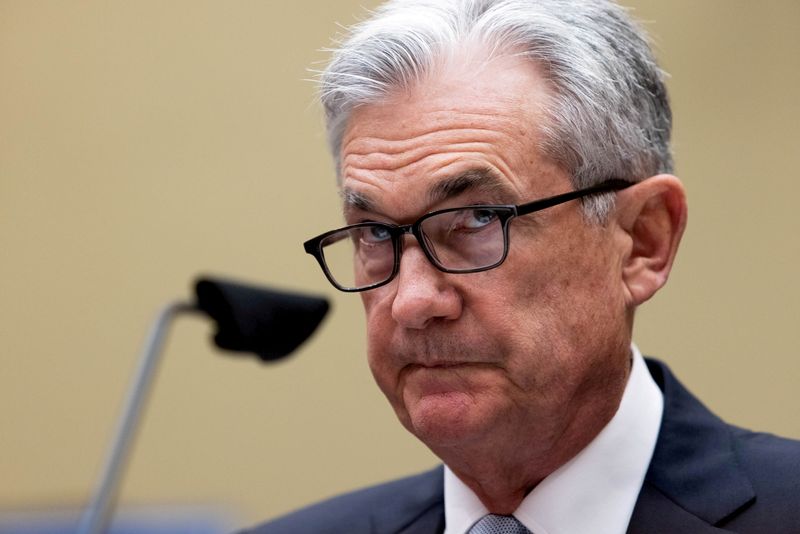(Reuters) -The Federal Reserve will “soon” release research examining the costs and benefits of a central bank digital currency, or CBDC, Fed Chair Jerome Powell said on Wednesday.
Crypto enthusiasts and members of the financial industry are eagerly awaiting the Fed’s research, which was initially slated to be released over the summer, for hints on where policymakers stand on whether the United States should issue a CBDC.
Powell said on Wednesday that no decision has been made and that the priority is for the U.S. payments system to remain “stable and trustworthy.”
“We’re working proactively to evaluate whether to issue a CBDC and, if so, in what form,” Powell said in a news conference following the conclusion of the U.S. central bank’s latest two-day policy meeting.
The ultimate test that will apply when assessing a CBDC, he told reporters, is if there are “clear and tangible benefits that outweigh any costs and risks.”
The Fed chief said the discussion paper, announced in May, will tackle some of the public policy issues surrounding a CBDC and set the stage for the central bank to seek feedback on the issue from lawmakers and the public, Powell said.
The Boston Fed is also undertaking a multi-year research with the Massachusetts Institute of Technology to explore the technology that could be used for a CBDC – with the first phase of the research expected soon.
A digital currency issued by the central bank would be different from cryptocurrencies such as bitcoin, which are decentralized and can fluctuate wildly in value. While the exact structure hasn’t been decided, a CBDC could give the person or business who holds it a direct claim on the central bank, the same as with physical cash.
Fed officials appear divided on the need for a CBDC. While some, including Fed Governor Lael Brainard, say the United States should be a leader in the area at a time when other large economies such as China are moving more aggressively, Fed Vice Chair for Supervision Randal Quarles and others are more skeptical that the benefits will outweigh the costs.
Powell on Wednesday repeated his view that he doesn’t think the U.S. is behind on its efforts.
“It’s more important to do this right than to do it fast,” he said. “We’re the world’s reserve currency and I think we’re in a good place to make that analysis and to make that decision.”
(Reporting by Jonnelle MarteEditing by Leslie Adler, Paul Simao and Diane Craft)















